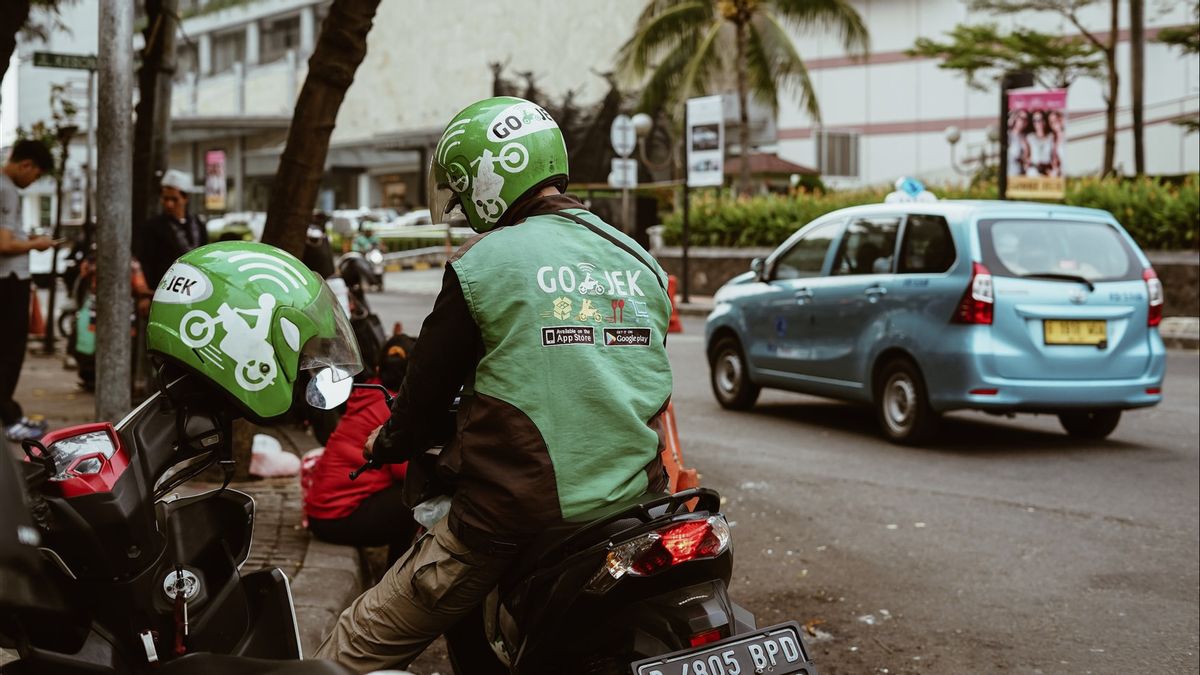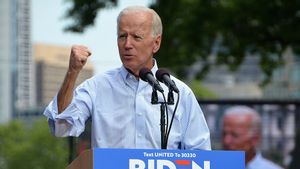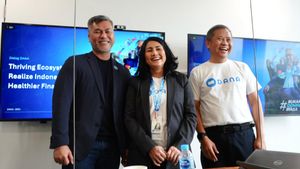
JAKARTA - The merger of Gojek and Tokopedia or GoTo creates new problems for online motorcycle taxi driver partners (ojol). One of them is the issue of reducing incentives until news circulates that GoTo's ojol partners for GoKilat or GoSend Same Day services will carry out a massive strike. This polemic can be like an iceberg phenomenon from the problem of the work status of ojol who are only limited to partners.
Reportedly, the amount of the Gojek driver's latest incentive has decreased significantly. For example, the Gosend SMD Jabodetabek incentive is set at IDR 1,000 per delivery with a total of 1-9 deliveries. Then IDR 2,000 per delivery for 10-14 deliveries, and IDR 2,500 per delivery if the driver completes the delivery of more than 15 packages.
Compare this with the old incentive scheme of IDR 10,000 if the driver completes 5 deliveries, IDR 30,000 for 8 deliveries, IDR 45 thousand for 10 deliveries, IDR 60,000 for 13 deliveries, and IDR 100,000 for 15 deliveries. As a result, there was news that Gojek drivers would conduct a simultaneous strike in Greater Jakarta for three days from June 8 to 10, 2021.
The decrease in incentives is considered to be related to Gojek's efficiency measures as a consequence of the merger with Tokopedia. Chairman of the Indonesian Digital Empowering Community (IDIEC) M. Tesar Sandikapura explained that in the GoTo case, efficiency was on Gojek's side because of the additional burden resulting from the merger.
“The problem is that Gojek then burdens this on partners. It's not money from the company but partners' profits that are cut," Tesar said, quoted by Bisnis.
This problem is considered to be detrimental to partner drivers, moreover there is no negotiation between the company and partners in deciding the adjustment. But on the other hand, Gojek is trying to provide greater opportunities for more partners in obtaining incentives.
This was explained by Gojek's VP of Corporate Communications Audrey Petriny. "This policy is a step to more evenly distribute the number of partners who can receive these incentives, so that more partners have the opportunity to earn additional income during the pandemic recovery period," he said as quoted by Kompas.

The mass strike action of a number of Gojek partner drivers opens the question of what their fate will be after the merger into GoTo. The answer to this question will also at least be able to explain the relationship between ojol drivers and companies.
To answer this question, VOI interviewed Indef researcher Esther Sri Astuti. He explained that the merger of several companies still provides the same conditions for workers. This is different if the company expands, there will be new job creation to reduce unemployment. For the GoTo merger, Esther assesses the situation is still the same.
This incentive adjustment is inseparable from the status of the Gojek driver itself. They are partners, not Gojek employees. Partner status is not binding in the Manpower Act. This is what makes drivers have weak bargaining power against the company.
"Their initial setting is partners, they are not considered as employees. As employees, this means that Gojek is tying Gojek to the Manpower Act. For example, if there are layoffs or there are problems, it must refer to the Manpower Act, the company is difficult to fire because of compensation," said Esther.
Regarding the adjustment of incentives, the weak bargaining power of drivers also ultimately makes them "willingly or not" only able to follow company rules. Meanwhile, the company certainly has the principle of pursuing profit and making efficiency.
"What is clear is that online drivers are people who have low bargaining power. So, if both are profitable, the demands of online drivers are too high but it does not benefit GoTo, they will automatically not be combined. ," said Esther.
Partnership issuesOjol drivers seem to have no bargaining power to protest if there is a reduction in incentives. The reason is that their ties of cooperation are only partners. Though that can not be the full reason.
This was explained by the Child of the Nation's Advocate Lawyer, Farizal Pranata. According to him, even though the cooperative bond between ojol drivers and the company is a partnership, the company still needs to provide some guarantee rights. Among other things, health insurance, safety and rules related to fee distribution.
“[Companies] really need to provide health, safety and related fee-sharing rules. This remains the responsibility of the company and it must be included in the terms of the partnership," Farizal told VOI some time ago.
Farizal's opinion is not without basis. According to him, Article 28H of the 1945 Constitution states that "everyone, even if he is a courier, must be guaranteed his health."
Meanwhile Farizal also explained why the company was reluctant to provide guarantees to the couriers. “They postulated that the entity is a technology-based company. They refuse to be said to be a transportation company, so there is no obligation to provide health insurance," he concluded.
Other BERNASThe English, Chinese, Japanese, Arabic, and French versions are automatically generated by the AI. So there may still be inaccuracies in translating, please always see Indonesian as our main language. (system supported by DigitalSiber.id)








